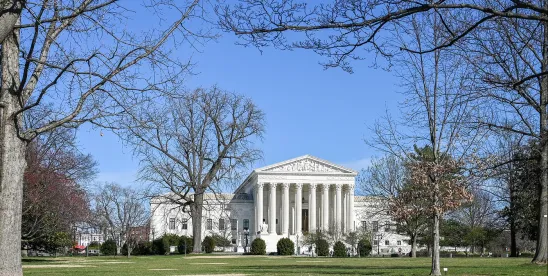Earlier this year, the Supreme Court heard oral arguments in two cases that may overturn Chevron USA, Inc. v. Natural Resources Defense Council, which would have implications for federal agencies rule- and decision-making authority. In Chevron, an administrative law ruling, the Supreme Court held that courts must defer to agency expertise on legal issues. The scope includes agencies that interpret and apply labor and employment laws, including the Department of Labor (DOL), National Labor Relations Board (NLRB), Equal Employment Opportunity Commission (EEOC), and Occupational Safety and Health Agency (OSHA).
Though the Court has not yet issued its rulings, oral arguments in both pending cases, Loper Bright Enterprises v. Raimondo and Relentless Inc. v. Department of Commerce, indicate that the Court may be poised to modify the Chevron doctrine. There are three possible outcomes: (1) the Court completely dismantles Chevron, (2) the court replaces Chevron with a separate agency deference framework, or (3) the Court preserves Chevron as is. Given the nature of certain Supreme Court Justices’ questions during arguments earlier this year, it seems like seven Justices have taken positions – four in support of dismantling or altering Chevron deference, and three opposed. The final decision comes down to the swing justices on the issue: Chief Justice John Roberts and Justice Amy Coney Barrett.
The upcoming decisions will invariably impact how agencies regulate labor and employment in the future. In the future, weakening or eliminating courts’ obligation to defer to federal agencies’ legal interpretations and positions might lead agencies to publish fewer or less ambitious regulations. Doing so also may lead to an uptick in litigation against agency decisions. For example, currently, when a court reviews an NLRB ruling, the court is beholden to the Chevron doctrine’s grant of significant deference to the NLRB on labor relations issues. If the Supreme Court overturns Chevron, courts reviewing NLRB rulings likely will accord far less deference to Board decisions and reasoning and rule more independently. In anticipation of this, the NLRB’s counsel is formulating and previewing arguments in support of judicial deference to the Board regardless of whether the Court upholds Chevron deference.
The decision may also impact ongoing challenges to labor and employment administrative rules. These active cases include challenges to the Federal Trade Commission’s new rule banning noncompete agreements between employers and employees, the DOL’s definition of white-collar workers, the NLRB’s joint-employer rule, and more.
More broadly, the post-Chevron litigation landscape will force agencies named in these lawsuits to adapt their legal defense arguments to focus on the affirmative merits of challenged action without the benefit of judicial deference to agencies’ quasi-legislative authority.





 />i
/>i
